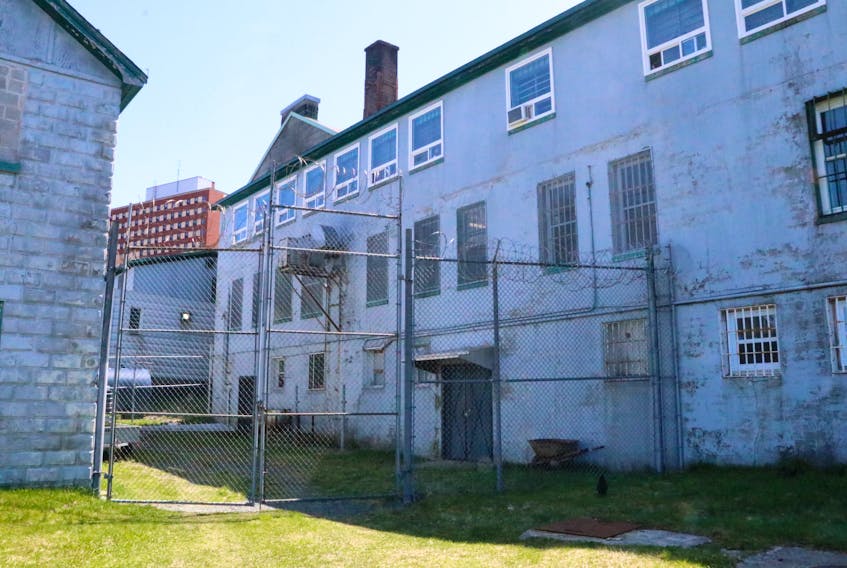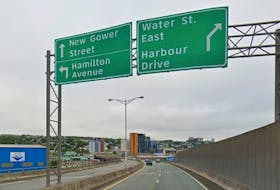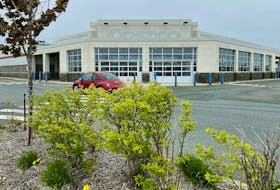The will is there.
The programs are available. All that’s missing is the space to house it.
That’s how the leadership at the John Howard Society of Newfoundland and feels about the need for a new prison for Newfoundland and Labrador
“There is a need for a new prison. Even (the Department of Justice) agrees with that. If there was appropriate space for appropriate programs, we could have greater success,” says Cindy Murphy, executive director at John Howard Society of Newfoundland and Labrador.

“A new facility, we have to start there. I think that is the key starting point for us to house and treat people.”
The John Howard Society’s mandate is geared toward the rehabilitation of offenders, and safer communities through effective, just and humane responses to the causes and consequences of crime.
Murphy said housing inmates in the Secure Housing Unit (SHU) — segregation — hasn’t met with good results when studies are conducted of its effectiveness.
One of the John Howard Society’s primary values is that people have the right to live in a safe and peaceful society, as well as a responsibility implied by this right to respect the law.
She said this form of administrative segregation used at Her Majesty’s Penitentiary in St. John’s in a small area of the prison is not conducive to well-being and inmates can’t overcome mental health issues in that situation.

“We have to improve conditions of confinement and this all comes down to space. Right now, HMP is a dismal space and not conducive to wellness.”
All inmates have the right to be treated with dignity, equity, fairness and compassion without discrimination based on race, national or ethnic origin, colour, religion, sex, age or mental or physical disability.
The John Howard Society believes all people have the potential to become responsible citizens and all have the right and the responsibility to be informed about — and involved in — their individual criminal justice process. Also, that justice is best served through measures that resolve conflicts, repair harm and restore peaceful relations in society.
“We work in partnership with the (Canadian Mental Health Association-NL), Murphy said. “They provide the justice program and other services. This has been a good partnership.”
She explained that this province’s prison facilities don’t offer the same level of programs as the Correctional Service of Canada, which provides its own offerings in federal institutions.
Murphy said mental health for all inmates is paramount, particularly coming on the heels of the recent deaths of two women inmates in separate incidents in the Clarenville women’s prison, and the sudden deaths of two men at HMP — all four people died within the past year. She has been in close contact with the Department of Justice on this and a number of other mental health initiatives.
“We are seeing inmates chronically re-offend because they don’t necessarily get all the help they need. With mental health and addictions, if they are not well and supported, they relapse.”
- Cindy Murphy, John Howard Society NL
“Right now, mental health and addictions programs are awful. Health care in these areas is needed in the prisons, but this is a long way out yet,” she said.
“We are seeing inmates chronically re-offend because they don’t necessarily get all the help they need. With mental health and addictions, if they are not well and supported, they relapse. They go back to the negative peers they have had in their past, live in poor housing and go back to what they have known,” she added.
RELATED STORY:
SPECIAL REPORT: Newfoundland's ‘HMP has its issues’
The programs the John Howard Society presents are offered from a trailer outside of the main building at HMP. Murphy says the facilities are inappropriate and inadequate.
“The prison is often overcrowded and dirty and needs to be replaced. They can’t live in the lap of luxury, but to do our work, it is hard when it is overcrowded and dirty. They require a space that is conducive to change and rehabilitation.”
In addition, she says professional and medical help for inmates has to be enhanced.
She hopes the John Howard Society can partner more with the Department of Health and give them better options.
“Right now, their choices are limited at HMP. We are all entitled to health care in Canada. That is not so there.
“If we can divert some of those people out of custody and into mental health facilities and use the approach of treatment as opposed to incarceration, we will be better served.”
Volunteers key to visitation program at HMP
The Telegram
Prisoners at Her Majesty’s Penitentiary (HMP) in St. John’s, especially those who don’t receive regular visits from family and friends, are eligible to participate in the 121 Prison Visitation program provided by the John Howard Society of Newfoundland and Labrador.
It’s offered on a one-to-one basis, hence the name 121.
A prison volunteer committee oversees the program, made up of representatives from the John Howard Society and HMP. The committee is responsible for volunteer recruitment and selection and the ongoing development and evaluation of the program.
The program pairs prisoners with volunteers for ongoing friendship based upon a minimum of two visits per month, providing contact with the non-institutional community and a chance for the visiting volunteer to have a lasting influence.
The volunteer could serve as a link to the prisoner’s family with the guidance of the co-ordinators. Volunteers can also be a friend and support following a prisoner’s release, helping them during the reintegration process.
“Rehabilitation has to be therapeutic, where (inmates) can learn and do better,” said Cindy Murphy, executive director at the John Howard Society of Newfoundland and Labrador.
“It will place them in an environment to do better. It is tough to do that at HMP.”
Additional counselling services and rehabilitation programs offered by the John Howard Society at HMP include:
• Anger management for moderate-risk and high-risk clients.
• Family Violence – OASIS, a program for people who have been convicted of threatening and/or assaultive behaviour against an intimate partner or family member.
• Criminal Behaviour Awareness, a program offered in conjunction with anger management and designed to target risk factors such as antisocial attitudes and values, pro-criminal associations and substance abuse.
• Intermittent Sentence Workshop, a two-day weekend workshop targeting impaired drivers.
• Sex Offender Intervention for moderate-risk offenders convicted of sex-related offenses. Clients are assessed and enter into counselling to address specific risk factors.
• Annual Family Prison Visit — through financial support from the Correctional Service of Canada and the co-ordinated efforts of institutional staff, inmate committees, John Howard Society staff and volunteers, transportation and accommodation are provided for families of Newfoundland and Labrador inmates serving sentences in federal institutions in the Maritimes.
“Because of the absence of a federal prison here, we send 15 to 20 family members to visit their loved ones,” Murphy said. “This is a four-day trip, a unique thing, that we do once a year. Corrections Canada recognizes the need for contact with family members.”
• Prison Library Program, staffed and operated by John Howard Society volunteers.
• C-Step — a program offering intensive rehabilitative services to offenders and ex-offenders in the community, through individual counselling and group interventions. It covers two major areas: cognitive restructuring and employability skill development.









